

Tao Te Ching
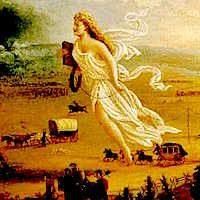
Romanticist Lineage
During only a short period of time, the influence of Romanticism changed the world in profound and unexpected ways. Reacting against the advent of industrialism, the beginnings of urban sprawl, and rapid population growth; Romanticism disrupted deeply held beliefs in rationality, ethical absolutes, and broadly held status quo values. It questioned the possibility of objective truth, encouraged spontaneity, innovation, spiritual freedom, and an intuitive/creative approach while striking a powerful blow against nationalism, fascism, totalitarianism, and the influence of tradition creating what we know think of as the modern age.
People (21)
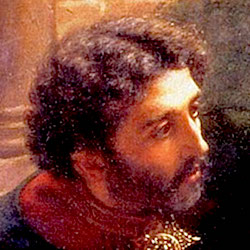
Peter Abelard Pierre Abélard
1079 – 1142 CE
Peter Abelard, Pierre Abélard (1079 – 1142)
Described as "the keenest thinker and boldest theologian of the 12th Century,” Abelard was on a strong path to becoming a pope when he fell in love with Héloïse and instead wrote some of the most important books of his era while becoming a legend in the history of romantic love, of inner certainty over external, status quo coersion. In his early life, thousands of students coming from many countries came to hear him teach. His fame and admiration immense, but his love of Héloïse led to his castration by her uncle, his becoming a monk, and her becoming a nun. This challenged the physical side of their relationship but their deep emotional bond continued through letters written the rest of their lives.
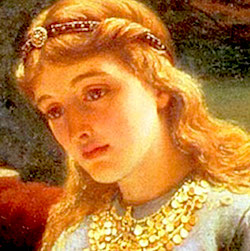
Heloise
1090 – 1164 CE
An orphan raised in a convent, Héloïse became a brilliant scholar, one of the earliest and most radical feminists, a powerful abbess over multiple convents, and half of one of the most famous and talked about relationships of her era. As femme fatale to Peter Abélard when he was on the rise toward becoming a pope, her influence caused him immense humiliation and pain as well as the inspiration for some of the most important books of the time, a regard for the sense over the words, and a declaration of philosophical independence for reason over belief. It’s become a tradition for the hoping-to-find-true love to leave letters at their crypt.
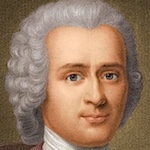
Jean-Jacques Rousseau
1712 – 1778 CE
Motherless from almost birth, abandoned by his father, poor in health and income; Rousseau wandered on his own for 12 years challenging the status quo and rejected by society as a dangerous rebel or insane criminal. Stoned by neighbors when he went for walks, harassed by police, and expelled from countries; he went on to become “the finest thinker of his time,” a main source for Jefferson and the Declaration of Independence, a cause of the French Aid for the American Revolution, and a seminal influence on Tolstoy, Wordsworth, Thoreau, Byron, Shelly, Keats, Schopenhauer, Kant, Goethe, and Marx. He transformed education, inspired the French Revolution and the Romantic Movement, wrote political and social books that became cornerstones of modern thought.
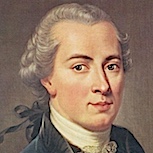
Immanuel Kant
1724 – 1804 CE
Credited with creating a paradigm shift responsible for much of modern philosophy, psychology, metaphysics, sociology, linguistics, and political theory; Kant was a quiet and introverted philosopher whose daily schedule was so precise that neighbors were said to set their watches by it. Child of the Enlightenment and father of the Romantic movement, he barely traveled but became “the central figure of modern philosophy,” inspired the American transcendentalism of Emerson and Thoreau, and a profound influence on many important thinkers like Hegel, Novalis, G. K. Chesterton, Schopenhauer, Bertrand Russell, Max Weber, Jean Piaget, and Noam Chomsky.
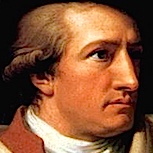
Goethe, Johann Wolfgang von
1749 – 1832 CE
Though a literary celebrity at 25 and most well known for his novels and poems, Goethe was also a natural philosopher, diplomat, civil servant, geologist, and scientist who developed a theory of color, inspired Tesla’s discovery of alternating current and whose early work on evolution influenced Charles Darwin. A freethinker who blended Christianity with pantheism, humanism, and other esoteric traditions, he became a major influence on Hegel, Schopenhauer, Kierkegaard, Nietzsche, Hesse and Jung. He authored some of the greatest novels ever written and his poems were set to music by Mozart, Beethoven, Schubert, Brahms, Liszt and many others. Continuously creating for 82 years, his wisdom deepened and merged into a culture we take for granted today.

William Blake
1757 – 1827 CE
A poet, painter, and songwriter mainly unrecognized during his life and at the time considered mad, Blake is now called “far and away the greatest artist Britain has ever produced” and “a seminal figure in the history of poetry.” Not fully appreciated until more than 200 years after he died, he’s now considered one of the most powerful impacts on twentieth century culture with an enormous influence on Carl Jung, Aldous Huxley, poets like William Butler Yeats and Allen Ginsberg, songwriters like Bob Dylan and Van Morrison. The origin of graphic novels and fantasy art trace back to Blake.

William Wordsworth
1770 – 1850 CE
Orphaned at an early age, connected with the common man while wandering through Europe on foot, caught up in both the ups and downs of the French Revolution, and Britain's only Poet Laureate who wrote no official verse; Wordsworth defined poetry as "the spontaneous overflow of powerful feelings” and along with Samuel Coleridge, used poems based in common language to help launch the Romantic Age of literature. A student of John "Walking" Stewart who blended yoga and Eastern wisdom from India with western pantheism, he published some of the most influential poetry in Western literature.
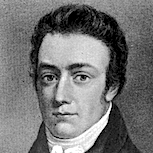
Samuel Taylor Coleridge
1772 – 1834 CE
One of the most influential English poets, co-founder of the Romantic Movement, prominent philosopher, gothic pioneer and leviathan impact on Mary Shelley, William Wordsworth, Thomas Carlyle, Emerson and American transcendentalism; Coleridge paid for his renown with poor health, depression, bipolar disorder, and a lifetime of opium addiction. Rescuing Shakespeare’s play Hamlet from denigration by critics, he established his reputation as aliterary critic. The instigator of "Conversational Poetry,” using common, everyday language to convey deep images and wisdom, he coined many still-used words like soulmate, selfless, pessimism, relativity, narcissism, actualize, and intensify

Novalis
1772 – 1831 CE
Poet, philosopher, mystic and civil engineer, Novalis (Georg Philipp Friedrich Freiherr von Hardenberg) only lived 28 years but in that short time still managed to condense his insight and poetic wisdom influencing Emerson, Hermann Hesse, Rilke, C.S. Lewis, Borges, and through George MacDonald, Tolkien, Mark Twain, GK Chesterton, Madeleine L'Engle. the Inklings, and the entire fantasy genre in literature.
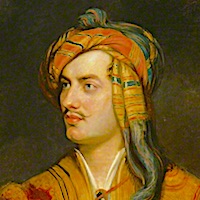
Lord Byron (George Gordon Byron)
1788 – 1824 CE
The first rock-star style celebrity
One of the best English poets, Greek national hero, first modern "rock-star" celebrity, revolutionary, politician, and major Romanticism influence; Lord Byron became renowned for a flamboyant bisexuality during a time when this was highly illegal. A major influence in the Romantic movement and close confidant of Percy Bysshe Shelley, he was known as "mad, bad, and dangerous to know." During his lifetime considered the greatest poet in the world; his fame continues throughout the world in 36 different Byron Societies, in over 40 operas, in his poetry set to music by Beethoven, Schubert, Schumann, Berlioz; and through the legacy of his daughter, a founding force in the first computer programming efforts.

Arthur Schopenhauer
1788 – 1860 CE
Though mainly unnoticed during his life, after he died Schopenhauer’s work had a huge impact on psychology, literature, art, philosophy, music and science. He was one of the first Western thinkers to affirm major aspects of Eastern philosophy. He called himself a Buddhist and compared his philosophy to basic Buddhist teachings. Einstein extolled Schopenhauer’s life-long influence and he was also respected and emulated by people like Nietzsche, Tolstoy, Freud, Jung, Joseph Campbell and Thomas Mann. His influence continues today into fields like modern evolutionary psychology.
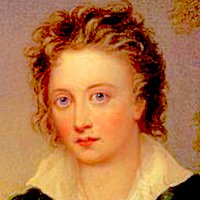
Percy Bysshe Shelley
1792 – 1822 CE
Another culture-transforming sage not recognized or appreciated during his lifetime, Shelley became regarded as one of the English language’s premier poets and transformers of political and social culture. A major influence on Thoreau's views on non-violent protest, political action, and his book, Civil Disobedience; he also inspired Karl Marx’s economic theories, Leo Tolstoy’s approach to non-violent resistance, Mahatma Gandhi, Martin Luther King Jr., and the world’s various Civil Rights Movements. During his 29-year life, most publishers became too afraid of being arrested to publish his work and his readership remained small and underground. From his tiny seed, however, our modern, humanistic culture sprouted.
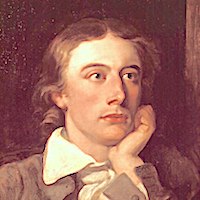
John Keats
1795 – 1821 CE
Writer of "poems as immortal as English"
One of the most popular poets of all time, Keats—in just 25 years of life—wrote what Will Durant called, “poems as immortal as English, and more perfect than Shakespeare.” Borges said that reading him was the most influential literary experience of his life, Tennyson called him the greatest poet of the 19th century, and Shelley wrote that his death was a national tragedy. He studied medicine and received a license to practice as a doctor and surgeon but chose the pure poverty of writing over financial security and social respect. During his lifetime, he published three volumes of poetry but during that time, sold only c. 200 copies. And far from foreseeing his future popularity, shortly before dying wrote, "I have left no immortal work behind me—nothing to make my friends proud of my memory.” His fame quickly grew however and his legend continues today in universities, movies, and books by authors including Dan Simmons, Tim Powers, and Julie Bozza.
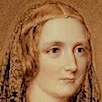
Mary Shelley
1797 – 1851 CE
Caught between her famous father’s Enlightenment political theories (William Godwin) , her famous husband’s allegiance to the ethos of Romanticism (Percy), and her famous mother (Mary Wollstonecraft) who is considered a founder of feminist philosophy; Shelley’s work promoted Taoist-like values emphasizing collaboration over competition, compassion over personal gain, the true civilizing role of the feminine principle. Her novel, Frankenstein foreshadowed our modern era and how easily we can become enslaved and manipulated by our inventions. A voice against superstition and dogma, her books became a beacon for the era of Romanticism, liberal politics, and gender equality.
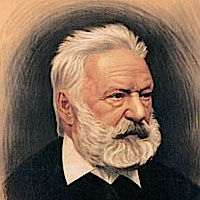
Victor Hugo
1802 – 1885 CE
Literary pioneer, poet, and social justice provocateur
Romantic literature pioneer, poet, artist, and one of the greatest French writers; Victor Hugo’s work influenced most of the social and political issues of his time. His literary success opened doors into the political world and he became more and more involved in politics. He campaigned against capital punishment and social injustice, for more freedom of the press, free education for children, universal voting rights, and a “United States of Europe.” While his books helped create important cultural and social shifts, his political efforts led to exile, a condemnation from Napoleon III, and death threats from mobs outside his house. His political work on ending the death penalty, however, did lead to its abolition in Geneva, Portugal, and Colombia. Two plus million people walked in his funeral procession and today almost all French cities have named streets after him.
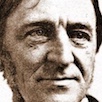
Ralph Waldo Emerson
1803 – 1882 CE
Champion of individualism
Friend and mentor to Henry David Thoreau and godfather to William James, Emerson championed individualism as a counterbalance to society’s conformist pressures. He wrote what Oliver Wendell Holmes considered America's “Intellectual Declaration of Independence” and he summarized his philosophy as “the infinitude of the private man.” The most influential writer of 19th-century America, he was called “the Concord Sage” and became the leading voice of intellectual culture in the United States influencing American religions to become more gnostic, less fundamentalist and conservative.

George Sand (Amantine Lucile Aurore Dupin)
1804 – 1876 CE
Intriguing, inspiring, and subversive; France's most famous 19th C. woman writer; friend to Franz Liszt, Balzac, Henry James, Browning, Dostoevsky, and Turgenev; famous lover of composer Chopin, and famous actress Marie Dorval, George Sand was a cross-dressing, cigar and hookah smoking, rebellious and scandalous dramatist and campaigner for important political reforms. Not the most likely person for this list, her creative courage and compassionate kindness make it an easy choice. As she wrote, “Know how to give without hesitation, how to lose without regret, how to acquire without meanness.”

John Stuart Mill
1806 – 1873 CE
One of the most influential thinkers in history, Mill learned Greek at 3 years old, studied Euclid and Latin at 8, Plato at 10, logic and Aristotle at 12, Adam Smith and political economy at 13, chemistry and zoology at 14, and by 20 was suicidal only to be saved by the poetry and inspiration of William Wordsworth. He promoted individual freedom over state control, economic democracy over capitalism, the environment and quality of life over unlimited growth, taxing unearned income high and earned income not at all. He linked freedom with self-improvement, worked to end slavery, and was one of the first in his time to advocate equality for women.
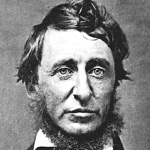
Henry David Thoreau
1817 – 1862 CE
Father of environmentalism and America's first yogi
Dedicated abolitionist, "America's first yogi," champion of nature and the natural, “father of environmentalism;” Thoreau brought a little Lao Tzu into 19th Century America. Instead of following in the pattern of his piers leading a life of “quiet desperation,” Thoreau followed much more in the Tao Te Ching’s style of Wu Wei. His non-violent approach to opposing slavery and the Mexican-American War inspired future leaders like Gandhi and Martin Luther King. Although one of America's most famous writers, during his lifetime his most famous book, Walden didn’t sell enough copies to pay for the paper it was printed on.
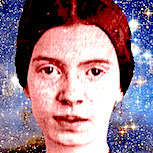
Emily Dickinson
1830 – 1886 CE
Though now considered one of the greatest figures in American literature and one of the most important poets, only a few of Dickson’s poems were published during her lifetime and those were significantly edited and changed by publishers. Her first collection wasn’t printed until years after her death and a complete collection wasn’t published until 1955. A serious student of botany, she made and maintained a vast collection of plants; highly introverted, creative, unique, and challenging the assumptions of her time; she seldom left her house but wrote 40 volumes of almost 1800 poems.

Rainer Maria Rilke
1875 – 1926 CE
Profound singer of universal music
One of the most popular and best-selling poets of all time, a Catholic who believed that Jesus had a baby with Mary Magdalene, secretary to famous sculptor Rodin, lover and confidant of married Sigmund Freud student, psychoanalyst, and Nietzsche’s love focus, Lou Andreas-Salomé; Rilke’s mystical writings are still frequently quoted on TV, in movies, music, and self-help books. Taking art as religion and the only source of human redemption, he reconciled dichotomies like life and death, suffering and joy, beauty and destruction unifying opposites and finding deep meaning is all experience. He described god as nature, life force, and an evolving consciousness only slowly coming into existence. Hermann Hesse wrote that “through him resounds the music of the universe.”
Related Sources (0 sources)
Quotes about the Romanticist Lineage (4 quotes)
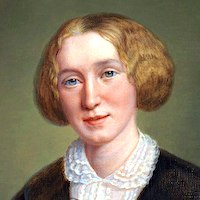
“Romanticism, which has helped to fill some dull blanks with love and knowledge, had not yet penetrated the times with its leaven and entered into everybody's food; it was fermenting still as a distinguishable, vigorous enthusiasm in certain long-haired German artists at Rome, and the youth of other nations who worked or idled near them were sometimes caught in the spreading movement”
Comments: Click to comment

“It is not the psychology of the romantics that is at fault: it is their standard of values. They admire strong passions, of no matter what kind... hence the type of man encouraged by romanticism is violent and anti-social, an anarchic rebel or a conquering tyrant.”
Comments: Click to comment
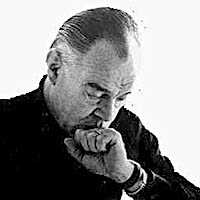
“Romance only comes into existence where love is fatal, frowned upon and doomed by life itself.”
Comments: Click to comment
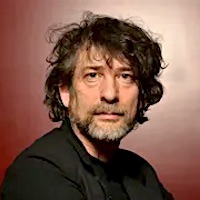
“The advantage of love at first sight is that it doesn't require a second look.”
Comments: Click to comment
Comments (0)